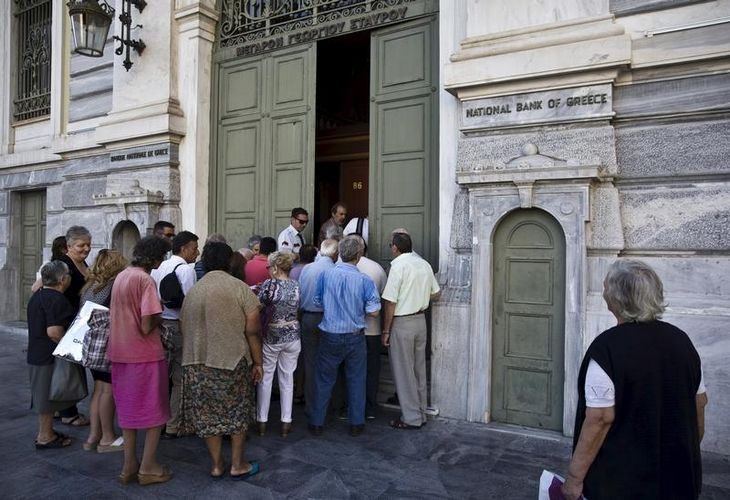Bondholders in Greek banks are bracing themselves for possible restructurings of the institutions that could see them face losses, after the Greek government and its creditors in effect admitted last week that the four major lenders needed to be recapitalised.
In a letter seen by IFR to the European Central Bank, European Stability Mechanism, Eurogroup and Bank of Greece, a group of senior bondholders in National Bank of Greece said they were “concerned…about the lack of clarity and transparency in relation to measures that may be taken to revitalise the banking sector in Greece”.
As part of last week’s deal, Greece needs to approve the implementation of the EU Bank Recovery and Resolution Directive into Greek law by today, July 22. That would allow most liabilities of a bank, aside from insured deposits of less than €100,000, to be “bailed-in” as part of a troubled institution’s recapitalisation before any state funding was provided.
That would make senior bondholders particularly vulnerable if the rules were to take effect immediately. The BRRD must be enacted by national governments across the EU before the end of the year.
A source close to the authors of the letter confirmed they hold around 25% of NBG’s €750m April 2019 4.375% bonds, which currently trade at 40 to 41.5 cents in the euro.
These bonds were issued in April 2014. IFR reported that hedge funds were allocated 38% of the notes amid strong demand. Lead managers were Bank of America Merrill Lynch, Citigroup, Goldman Sachs, HSBC and Morgan Stanley.
The letter urged Greece to ensure private sector solutions were fully explored for NBG’s recapitalisation “before resorting to resolution tools”. If resolution was necessary they asked that “senior bondholders are kept whole” and “creditor hierarchies are fully respected”.
In some European bank restructurings, such as in Ireland, junior bondholders were restructured before equity was entirely wiped out. And after Greece’s sovereign restructuring in March 2012, bailout money was used to recapitalise the banks without any bank bondholders taking a haircut. The BRRD was drafted to ensure more equitable pan-European guidelines were followed.
Rescue funds?
The bondholders, who are advised by law firm Shearman & Sterling, have offered to increase their “financial commitments to NBG under appropriate circumstances” if private recapitalisation options were to be discussed. These could also include divestments and mergers.
The direction of the talks are likely to revolve around whether the banks – NBG, Piraeus, Alpha and Eurobank – are now insolvent or merely suffering from a temporary lack of liquidity.
Last November Greece’s four leading banks were deemed solvent by the European Central Bank after its comprehensive assessment. That exercise said three of the four banks did not have enough capital at the end of 2013 but had since raised sufficient to satisfy the regulator.
However, since then, at least €44bn of deposits – a quarter of the total – have left the banks, largely funded by increased use of the ECB’s Emergency Liquidity Assistance facility. Overall €89bn has been extended to the banks through this facility.
Since the end of June, individual account holders have had their withdrawals restricted and the banks were shut. Branches only reopened this week. That is expected to have exacerbated the bad loans held on their books. At the end of March, 40% were classed as delinquent.
The uncertainty means it is likely Greek and European authorities will insist that the banks are restructured in order to make them viable. The agreement reached in Brussels on July 13 said €25bn was now needed from the European Stability Mechanism to act as a buffer. This could be used to recapitalise them.
However, the bondholder letter notes that three days later Mario Draghi, president of the ECB, said the “big banks are solvent”. That allowed him to maintain the ELA facilities.
Ratings agency S&P cut the ratings of the four Greek banks from CCC+ to CCC, outlook negative, at the end of June. There is concern that the ECB will no longer regard deferred tax assets as suitable capital in the future too.
NBG has €5.7bn of subordinated bonds outstanding, according to research by RBS.
